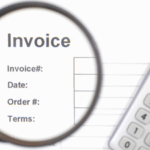Why DIY Prenups Often Fail in Colorado (and What to Do Instead)
With so many legal templates available online, it’s tempting to think you can handle your own prenuptial agreement — especially if both partners are on the same page. You download a form, fill in the blanks, sign it, and move on.
But when it comes to prenups in Colorado, “do-it-yourself” can quickly turn into “do-over in court” — or worse, a total loss of the agreement’s enforceability.
If you’re serious about protecting your finances and your relationship, it’s critical to understand why DIY prenups often fail in Colorado — and what you should do instead to get it right.
Colorado Law Has Strict Requirements for Enforceability
A prenuptial agreement isn’t enforceable just because two people signed it. Under the Colorado Uniform Premarital and Marital Agreements Act (UPMAA), there are several legal standards your prenup must meet — and if it doesn’t, a judge can toss it out entirely.
Some of the key legal requirements include:
- Voluntary signing by both parties
- Full financial disclosure of assets and debts
- Adequate time to review before signing (no last-minute signings before the wedding)
- Opportunity to get independent legal representation or a written waiver of separate legal counsel with informed consent
- Fairness and clarity in the agreement’s terms
Most DIY prenups fail on one or more of these points. They might be missing essential financial disclosures. They may not include proper waivers. Or they’re signed under pressure, with no clear evidence of voluntariness. If challenged, these agreements are highly vulnerable in court.
Online Templates Aren’t Colorado-Specific
Many people use downloadable prenup templates from national websites, assuming they’ll “work in any state.” But prenup laws vary significantly across the country, and Colorado is no exception.
What’s enforceable in California, Florida, or Texas might not pass legal scrutiny in a Colorado courtroom. And most DIY templates don’t reflect the nuances of Colorado’s approach to spousal maintenance, separate vs. marital property, or financial disclosures.
Even if the document looks official, it may be based on outdated laws or irrelevant legal frameworks. Without a Colorado-specific strategy, you’re gambling on your agreement holding up when it matters most — during a divorce.
Lack of Opportunity to Get Independent Legal Advice Is a Common Dealbreaker
Colorado courts take the concept of fairness seriously — especially in prenups. If one party had an attorney and the other didn’t have the opportunity to get one, the court will scrutinize whether both people truly understood what they were signing.
While it’s possible to waive the opportunity to have separate legal representation, the waiver must be clear, informed, and voluntary. That’s hard to prove when you’re using a boilerplate document with no supporting evidence or documentation of legal advice.
And here’s the kicker: if a judge believes one party didn’t fully understand the terms or was pressured into signing, they could invalidate all or part of the prenup — even years after the marriage.
DIY Prenups Often Create False Security
Perhaps the biggest danger of a DIY prenup is that it creates a false sense of protection. Couples believe they’ve “handled it,” only to find out (often during divorce proceedings) that the document is incomplete, unenforceable, or written in a way that favors one party unfairly.
This can be especially painful in high-asset or second-marriage situations, where real estate, business interests, retirement accounts, or inheritance planning are at stake. A prenup that isn’t rock solid doesn’t just fail to protect your interests — it opens the door to confusion, costly litigation, and emotional stress.
The Alternative: A Legally Sound, Customized Prenup
The good news? You can keep the process simple and collaborative without risking the enforceability of your agreement.
A properly executed prenup doesn’t need to be confrontational or expensive. Working with an experienced attorney ensures:
- Your agreement complies with Colorado law
- Both parties get full financial transparency
- The language is specific, fair, and legally enforceable
- The process is documented, timely, and respectful
Many Colorado attorneys (ours included) offer flat-fee prenuptial agreements, so you know your cost upfront — no billing surprises. And when done right, a prenup can actually strengthen your relationship by building clarity, trust, and shared expectations before marriage.
Protect Your Future With Confidence
If you’re considering a prenuptial agreement in Colorado, don’t risk it with a DIY download. This isn’t just a piece of paper — it’s a legal contract that could shape your financial future for decades.
At Lester Law, we specialize in helping Colorado couples create prenuptial agreements that are clear, fair, and enforceable. Whether your situation is simple or complex, we’ll walk you through the process with transparency and respect so you can protect what matters most and start your marriage on solid ground.
Schedule a call with us today to get your prenup done right — no stress, no guesswork, and no surprises.
———–
This website includes information about legal issues. Such materials are for informational purposes only and may not reflect the most current legal developments. These informational materials are not intended, and should not be taken, as legal advice on any particular set of facts or circumstances. You should contact an attorney for advice on your specific legal problems.




